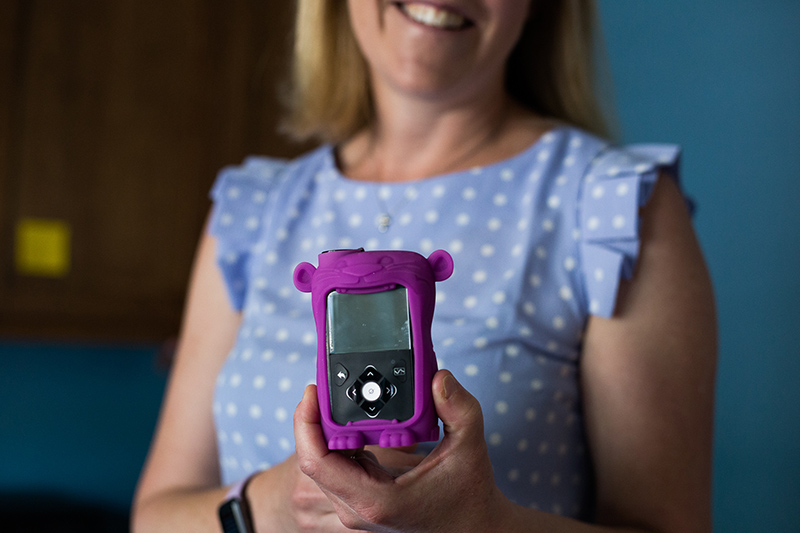Putting life in the foreground – and diabetes in the background
New Medtronic Medical Director, Jennifer McVean, M.D., brings fresh perspective
A lot has changed since Jennifer McVean, M.D., was diagnosed with type 1 diabetes as a child 34 years ago. Now, the pediatric endocrinologist and Medical Affairs Director at Medtronic is committed to the evolution of diabetes care.
She took this role for the Diabetes business in January and will provide medical expertise and strategic guidance from her lens as a pediatric endocrinologist – and to do it, she has to “wear a lot of different hats.”

A day in her life includes everything from clinical research, and evidence development to product design, marketing, commercial strategies, and education.
But for McVean, it all boils down to one thing: providing people with technology that puts life in the foreground and diabetes in the background – especially for children.
Fourteen years after seeing her first patient, she shifted her focus from treating patients to fundamentally changing how we think about diabetes.
Cells worth saving
In type 1 diabetes (T1D), the body attacks beta cells in the pancreas that make insulin. People with T1D usually start showing symptoms when 85 to 90% of beta cells have been destroyed, which leaves just 10 to 15% of cells working so hard they can’t keep up. Eventually those cells lose function, too.
Knowing that diabetes is easier to manage when some beta cells remain, McVean started to wonder if advanced diabetes technology could help save beta cells.
She’s one of the investigators in a proof-of-concept study that uses Medtronic-donated devices, which work with a continuous glucose monitor to administer varying amounts of insulin to help maximize the time glucose within the recommended range.
The study, among other things, set out to answer McVean’s beta cell question. If people with diabetes could start treatment to increase their time in range within their first month of diagnosis, could beta cells survive longer? And if so, what could that mean for the future of diabetes care?
The research will wrap up later this year and is just one way McVean began to shift her focus. The second way is by coming to work for Medtronic, where she wants to advance technology that’s easy to use and improves health outcomes.
Older insulin pumps used to require users to input a lot of data which could feel like extra work. Today’s pump systems are starting to automate insulin delivery, and McVean looks forward to even smarter automated insulin delivery systems that track food and exercise, so nobody painstakingly measures every morsel of food they eat. The learning ability of AI will someday enable a pump that simply needs to be filled with insulin.
“The goal of each advancement in technology is to further decrease the burden for the patient,” she said.

As a pediatric endocrinologist who missed out on some of her own childhood activities because of type 1 diabetes, she thinks about the impact the evolution of care will have on children.
“It’s not having to take the time out during sports to deal with diabetes or sit on the sideline and be the one that's different. That's the worst as a kid,” she said. “Even if you're totally comfortable with your diabetes, no one wants to be different.”
For that alone, McVean is grateful for each advancement.
“The goal of automated insulin delivery systems is to make living with diabetes as easy as it could possibly be,” she said.
Hear more from McVean on the MedtronicTalks Podcast.
Subscribe
iTunes Spotify Soundcloud Google
L001-04072022

